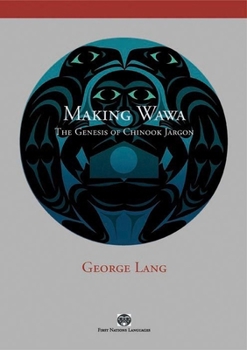Making Wawa: The Genesis of Chinook Jargon
Select Format
Select Condition 
Book Overview
A two-edged sword of reconciliation and betrayal, Chinook Jargon (aka Wawa) arose at the interface of "Indian" and "White" societies in the Pacific Northwest. Wawa's sources lie first in the language of the Chinookans who lived along the lower Columbia River, but also with the Nootkans of the outer coast of Vancouver Island. With the arrival of the fur trade, the French of the engages or voyageurs provided additional vocabulary and a set of viable cultural practices, a key element of which was marital bonding with Indian and metisse women. These women and their children were the first fluent speakers of Wawa. After several decades of contact, ensuing epidemics brought demographic collapse to the Chinookans. Within another decade the region was radically transformed by the Oregon Trail. Wawa had acquired its present shape, but lost its homeland. It became a diaspora language in which many communities seek some trace of their past. A previously unpublished glossary of Wawa circa 1825 is included as an appendix to this volume. Making Wawa will attract the attention of linguists, especially those involved in contact linguistics and the languages of the Pacific Northwest. It will also interest historians and other scholars interested in Native and gender studies, cross-cultural conflict, and transculturation.
Format:Paperback
Language:English
ISBN:0774815272
ISBN13:9780774815277
Release Date:July 2009
Publisher:University of British Columbia Press
Length:216 Pages
Weight:0.60 lbs.
Dimensions:0.6" x 6.2" x 9.1"
Customer Reviews
0 rating





